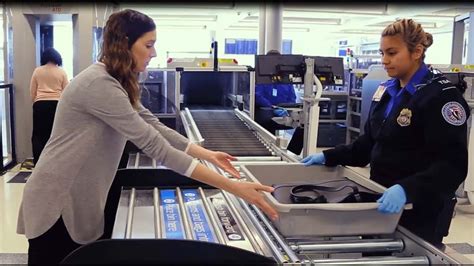
Southwest Airlines’ revamped boarding policy, prioritizing passengers who pay extra for early boarding through “EarlyBird Check-In” or upgraded “Business Select” fares, has ignited considerable backlash from travelers accustomed to the airline’s traditional first-come, first-served seating arrangement. The change, which effectively diminishes the chances of free boarding passengers securing preferred seating, is perceived by many as a betrayal of Southwest’s historical commitment to egalitarianism and transparent pricing.
The alteration has spurred a wave of discontent across social media platforms and travel forums, with customers expressing their frustration and vowing to reconsider their loyalty to the airline. Critics argue that Southwest is increasingly resembling its competitors by prioritizing revenue generation over customer satisfaction and eroding the unique value proposition that once set it apart. The move also raises concerns about accessibility and equity, as it potentially disadvantages budget-conscious travelers and families who may struggle to afford the additional fees for early boarding.
The Shift in Boarding Dynamics
Southwest Airlines, traditionally known for its open seating policy without assigned seats, has long operated on a boarding system where passengers are assigned boarding groups (A, B, or C) and numbers (1-60+) based on check-in time. This system enabled passengers to choose their preferred seats once onboard, fostering a sense of fairness and spontaneity. However, with the growing popularity of “EarlyBird Check-In,” which automatically checks passengers in 36 hours before departure for a fee, and “Business Select” fares, which guarantee A1-A15 boarding positions, the dynamics of the boarding process have been significantly altered.
The practical effect of these premium boarding options is that a substantial portion of the A boarding group is now occupied by passengers who have paid extra for priority access. This leaves fewer desirable seats available for those who rely on the traditional free check-in process, which opens 24 hours before departure. Passengers who check in precisely when the window opens are often relegated to the B or even C boarding groups, significantly limiting their seat selection options.
“I used to be able to check in right at the 24-hour mark and still get a decent seat,” said frequent Southwest flyer, John Miller, in a tweet expressing his disappointment. “Now, it feels like everyone is paying for EarlyBird, and I’m stuck in the back.”
Traveler Reactions and Concerns
The change has triggered a widespread negative response from travelers, who view it as a departure from Southwest’s core values. Many feel that the airline is exploiting its loyal customer base by incentivizing them to pay extra for a benefit that was once freely available.
“Southwest used to be different,” commented travel blogger, Sarah Chen, on her website. “They were all about fair fares and no hidden fees. Now, it seems like they’re nickel and diming us at every turn.”
One of the primary concerns raised by travelers is the impact on families traveling together. Securing adjacent seats can be challenging when boarding in later groups, potentially forcing parents to sit separately from their children. This issue is particularly acute for families with young children who require parental supervision.
“We always flew Southwest because it was easy to get seats together,” said mother of two, Emily Davis, in an online forum. “Now, I’m worried about being separated from my kids. It’s just not worth the stress.”
Another concern revolves around the perceived lack of transparency in Southwest’s pricing. While the airline has always offered “EarlyBird Check-In” as an option, the increasing number of passengers opting for this service has made it virtually essential for those seeking preferred seating. This creates a situation where passengers feel compelled to pay extra simply to avoid being relegated to undesirable seats.
“It’s like they’re holding our seats hostage,” said business traveler, Michael Thompson. “You either pay the ransom, or you end up in the middle seat by the lavatory.”
Southwest’s Perspective
Southwest Airlines defends its boarding policy, arguing that it provides options for passengers who value convenience and early access. The airline maintains that “EarlyBird Check-In” and “Business Select” are optional services that cater to different customer needs and preferences.
“We offer a variety of products and services to meet the diverse needs of our Customers,” said a Southwest Airlines spokesperson in a statement. “EarlyBird Check-In and Business Select provide Customers with the option to secure an earlier boarding position and choose their preferred seat.”
The airline also emphasizes that its fares remain competitive and that it continues to offer benefits such as free checked bags and no change fees, which differentiate it from other airlines. However, critics argue that these benefits are no longer sufficient to offset the frustration caused by the altered boarding dynamics.
Potential Impact on Southwest’s Brand
The controversy surrounding Southwest’s boarding policy raises questions about the potential impact on its brand image and customer loyalty. Southwest has long been known for its quirky personality, friendly service, and customer-centric approach. However, the recent changes risk alienating its core customer base and eroding the goodwill it has built up over the years.
“Southwest is losing its soul,” said brand consultant, David Lee. “They’re becoming just another airline, focused on profits above all else.”
The long-term consequences of these changes will depend on how Southwest responds to customer feedback and whether it is willing to make adjustments to its boarding policy. If the airline fails to address the concerns of its customers, it could face a decline in loyalty and market share.
Historical Context of Southwest’s Boarding Policy
To fully understand the current controversy, it’s essential to delve into the historical context of Southwest’s unique boarding policy. From its inception in 1971, Southwest Airlines adopted an unconventional approach to air travel, challenging the established norms of the industry. One of its most distinctive features was its open seating policy, a departure from the assigned seating systems prevalent on other airlines.
The rationale behind this policy was to simplify the boarding process, reduce turnaround times, and ultimately offer lower fares. By eliminating the need for seat assignments, Southwest could expedite the boarding process, allowing its planes to spend less time on the ground and more time in the air. This increased efficiency translated into cost savings, which the airline passed on to its customers in the form of lower ticket prices.
Over the years, Southwest’s open seating policy became synonymous with its brand. It was seen as a symbol of the airline’s commitment to egalitarianism and its rejection of the elitist practices of other airlines. Passengers appreciated the flexibility of being able to choose their own seats and the sense of camaraderie that developed as they boarded the plane together.
However, as Southwest grew and its customer base expanded, the limitations of the open seating policy became apparent. The boarding process could be chaotic, particularly on full flights, and passengers often felt pressured to check in early to secure a good seat. This led to the introduction of “EarlyBird Check-In” in 2009, which allowed passengers to pay a fee to automatically check in 36 hours before departure.
While “EarlyBird Check-In” initially seemed like a minor adjustment, it gradually altered the dynamics of the boarding process. As more passengers opted for this service, the number of desirable seats available for those who relied on the traditional free check-in process dwindled. This trend has accelerated in recent years, leading to the current backlash from travelers who feel that Southwest is no longer living up to its original promise.
Analyzing the Economic Implications
From an economic standpoint, Southwest’s decision to prioritize revenue generation through premium boarding options is understandable. Airlines operate in a highly competitive industry with thin profit margins. By offering ancillary services such as “EarlyBird Check-In” and “Business Select,” Southwest can generate additional revenue without significantly increasing its operating costs.
However, the economic benefits of these services must be weighed against the potential costs in terms of customer loyalty and brand reputation. If Southwest’s customers feel that they are being exploited or that the airline is no longer delivering on its value proposition, they may choose to fly with competitors. This could ultimately lead to a decline in revenue and market share.
Moreover, the shift towards premium boarding options could have unintended consequences for Southwest’s overall efficiency. If more passengers are paying for early boarding, the traditional boarding process may become less efficient, as gate agents spend more time managing different boarding groups. This could lead to longer turnaround times and increased operating costs, offsetting some of the revenue gains from premium boarding services.
Examining the Psychological Impact on Passengers
Beyond the economic considerations, it’s important to examine the psychological impact of Southwest’s boarding policy on passengers. The perception of fairness is a key factor in customer satisfaction. When passengers feel that they are being treated unfairly or that the rules of the game have been changed without their consent, they are likely to become dissatisfied and disloyal.
Southwest’s traditional open seating policy fostered a sense of fairness and transparency. Passengers knew that they had an equal opportunity to secure a good seat, regardless of their income or status. The introduction of premium boarding options has disrupted this sense of fairness, creating a perception that those who are willing to pay more are being given preferential treatment.
This perception of unfairness can lead to feelings of resentment and frustration, particularly among passengers who are already stressed and anxious about traveling. Passengers may feel that they are being taken advantage of and that Southwest is no longer a company that cares about its customers.
Alternative Solutions and Recommendations
To address the concerns of its customers and mitigate the negative impact on its brand, Southwest Airlines could consider several alternative solutions:
-
Re-evaluate the Pricing of EarlyBird Check-In: Southwest could consider adjusting the price of “EarlyBird Check-In” to make it more accessible to budget-conscious travelers. A lower price point could encourage more passengers to opt for this service, reducing the pressure on the traditional free check-in process.
-
Limit the Number of Passengers Eligible for Early Boarding: Southwest could impose a limit on the number of passengers who can purchase “EarlyBird Check-In” or “Business Select” on each flight. This would ensure that a sufficient number of desirable seats remain available for those who rely on the traditional free check-in process.
-
Implement a Hybrid Boarding System: Southwest could explore the possibility of implementing a hybrid boarding system that combines elements of assigned seating with its traditional open seating policy. For example, the airline could reserve a certain number of seats for families or passengers with disabilities, while allowing other passengers to choose their own seats on a first-come, first-served basis.
-
Improve Communication and Transparency: Southwest could improve its communication and transparency regarding its boarding policy. The airline should clearly explain the benefits of “EarlyBird Check-In” and “Business Select,” while also emphasizing that passengers who choose to check in for free still have an opportunity to secure a good seat.
-
Solicit Customer Feedback: Southwest should actively solicit feedback from its customers regarding its boarding policy. The airline could conduct surveys, host focus groups, or monitor social media channels to gauge customer sentiment and identify areas for improvement.
By implementing these solutions, Southwest Airlines can demonstrate its commitment to customer satisfaction and preserve its brand reputation.
The Broader Context of Airline Ancillary Fees
Southwest’s boarding policy change is symptomatic of a broader trend in the airline industry: the increasing reliance on ancillary fees. Airlines, facing intense competition and fluctuating fuel prices, have turned to ancillary fees as a means of boosting revenue and maintaining profitability. These fees, which cover everything from checked baggage to seat assignments to in-flight meals, have become a significant source of revenue for airlines worldwide.
While ancillary fees can benefit airlines by generating additional revenue, they can also frustrate passengers who feel that they are being nickel and dimed for essential services. The challenge for airlines is to strike a balance between maximizing revenue and maintaining customer satisfaction.
Southwest Airlines has traditionally been less reliant on ancillary fees than its competitors. The airline has long offered free checked bags and no change fees, which have been key differentiators in the market. However, as the airline industry has become more competitive, Southwest has gradually increased its reliance on ancillary fees, including those associated with early boarding.
The long-term impact of this trend on the airline industry remains to be seen. If airlines continue to increase their reliance on ancillary fees, they risk alienating their customers and eroding their brand reputations. However, if they can find ways to offer ancillary services that provide genuine value to customers, they may be able to generate additional revenue without sacrificing customer satisfaction.
Future of Southwest’s Customer Relationships
The future of Southwest Airlines’ customer relationships hinges on its ability to adapt to changing market conditions while remaining true to its core values. The airline faces a difficult challenge: it must generate sufficient revenue to remain competitive, while also maintaining the loyalty of its customers.
To succeed, Southwest must prioritize customer satisfaction and focus on building long-term relationships. This means listening to customer feedback, addressing their concerns, and providing exceptional service. It also means being transparent about its pricing and policies, and avoiding practices that could be perceived as unfair or exploitative.
Southwest has a strong foundation to build upon. The airline has a loyal customer base, a well-established brand, and a reputation for providing friendly and reliable service. By leveraging these assets and focusing on customer satisfaction, Southwest can navigate the challenges of the airline industry and maintain its position as a leading player.
FAQ Section
Q1: What exactly has Southwest Airlines changed about their boarding policy?
A1: Southwest hasn’t explicitly changed their core boarding process (A, B, C groups), but the increased popularity and utilization of “EarlyBird Check-In” and “Business Select” (which guarantee earlier boarding positions) means fewer desirable seats are available for those who check in for free within the standard 24-hour window. This makes it harder to get preferred seating without paying extra.
Q2: Why are travelers so upset about this change?
A2: Travelers feel Southwest is moving away from its traditional customer-friendly approach and becoming more like other airlines that prioritize revenue generation. They see the reduced chance of getting a good seat without paying extra as a hidden fee and a betrayal of Southwest’s historical commitment to fair pricing and open seating.
Q3: How does “EarlyBird Check-In” work, and how much does it cost?
A3: “EarlyBird Check-In” automatically checks you in 36 hours before your flight, improving your boarding position. The price varies depending on the flight and demand, but it typically ranges from \$15 to \$25 per person, per flight segment.
Q4: If I don’t pay for “EarlyBird Check-In” or “Business Select,” what are my chances of getting a good seat?
A4: Your chances are significantly reduced. While it’s not impossible to get a good seat without paying extra, especially on less crowded flights, you’ll likely be assigned to a later boarding group (B or C), leaving you with fewer seat options, particularly window and aisle seats. Checking in precisely when the 24-hour window opens improves your chances, but even then, many seats may already be taken.
Q5: What can I do to improve my chances of getting a good seat on Southwest without paying extra?
A5: Here are a few tips:
- Check in exactly 24 hours before your flight departs. Set an alarm and be ready to check in the moment the window opens.
- Travel during off-peak times. Flights that are less crowded will have more available seats.
- Consider Southwest’s credit card. Some Southwest credit cards offer benefits like upgraded boarding, but factor in the annual fee.
- Travel solo. It’s easier to find a single desirable seat than multiple seats together.
- Be polite and ask at the gate. Sometimes gate agents can assist with seating arrangements, especially for families with young children, but don’t expect them to always be able to help.
The shifting sands of Southwest’s boarding procedures present a complex issue for travelers. While the airline defends its tiered boarding options as providing choice and catering to diverse customer needs, the prevailing sentiment among many passengers is one of disappointment and frustration. This discontent underscores the critical importance of maintaining a balance between revenue optimization and preserving the brand’s identity as a customer-centric airline. As Southwest navigates these challenges, its success will hinge on its ability to listen to its customers, address their concerns, and adapt its policies in a way that upholds its core values while remaining competitive in the ever-evolving airline industry. Failing to do so risks alienating a loyal customer base and tarnishing the brand image that has long set it apart from its competitors.









